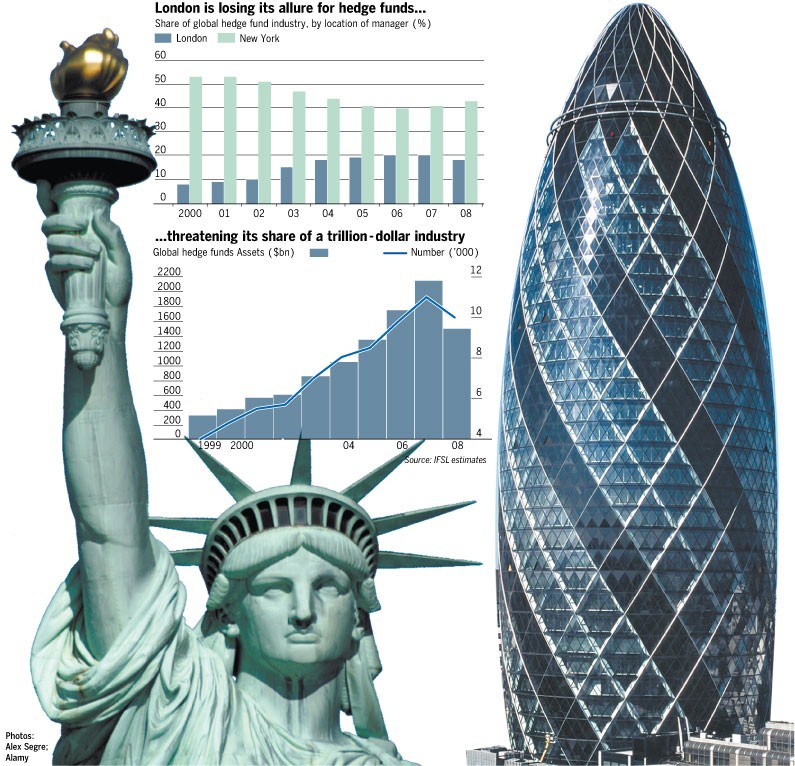The Creation of the Hedge Fund New York Magazine
Post on: 5 Апрель, 2015 No Comment

Long-Short Story Short
Alfred Winslow Jones invented what he called a “hedged fund.” The names been bastardized, and so has just about everything else about it.
Illustration by Jeffrey Decoster
N ear the end of the Depression, a 38-year-old sociology graduate student trudged off to Akron, Ohio, to research his dissertation on industrial relations. Nobody could have predicted what would transpire over the next decade. Alfred Winslow Jones turned his dissertation into a book, which turned into a story for Fortune. which turned into a job at the magazine, which was his initiation into the world of business and led to the founding of the worlds first hedge fund in 1949. Yes, the low-rent precincts of sociology, the Rust Belt, and journalism all played a part in creating the financial rocket ship of our times.
The term that Jones used was “hedged fund.” It promised the Shangri-la of investment strategies: profit without risk. Using a metric he called “velocity”—a precursor to what is now called beta, the measure of how closely a stocks movement tracks the broader market—he split his holdings into two groups: good stocks that rose faster than the market in good times and fell slower than the market in bad times, and bad stocks that did the opposite. He took long positions in the former and short positions in the latter, theoretically ensuring that hed make money whether the market went up or down.
Elegant as it was, its a difficult strategy to sustain. Who likes driving with one foot on the brake? When the market is humming and every jackass is cleaning up, it takes discipline to stay hedged and make less. But except for the occasional lapse, Jones apparently had it, eking out a dependable margin that, amplified with borrowed money, produced superior returns. His system demanded humility—it meant admitting that he couldnt outsmart the market.
Jones was a private man with an intellectual bent. John Brooks, the author of The Go-Go Years, the definitive account of Wall Street in the sixties, depicts him as a folk hero who resisted the eras hot-money schemes yet still emerged with a fortune.
This being Wall Street, even a revered figure like Jones has, shall we say, his short sellers. Barton Biggs, who once worked for him in the sixties, contests the purity of the Jones creation myth in his recent book, Hedge Hogging. The great founder of hedge funds, Biggs claims, was a stock picker with highbrow pretension who happened to have enough pull on the Street to gain access to privileged information. The hedging system was a cover for run-of-the-mill sleazy practices, writes Biggs: “Fortunately, Eliot Spitzer was still in diapers.”
Its hard to say what really goes on inside any hedge fund, much less one 40 years ago, but Joness career trajectory hardly makes him look like such a rank profiteer. He often took time away from the firm to serve in summer Peace Corps missions and even tried to establish a “reverse Peace Corps” in which aid recipients would send their own volunteers back to the United States—as a hedge, in a sense, against creating a culture of inferiority among developing countries. According to Brooks, Jones put “his most profound efforts into work not in the cause of profit but in that of humanity.” (When Biggs retired after 30 years at Morgan Stanley, what did he do? Start a hedge fund.)
Jones died in 1988, but his firm lives on as a so-called fund of funds, directing $200 million of its clients money to firms that employ Jones-like principles. “Id say a lot of the industry is still based on the long-short model,” says Robert L. Burch IV, Joness 32-year-old grandson who runs the firm with his father, Joness son-in-law, and operates his own tiny hedge fund on the side. “You just hear a lot less about them.” That may be because such assiduous risk avoidance has gone out of style. If Jones was obsessed with beta, todays investors are all about alpha, the singular pursuit of the above-market return, which is based on the conviction that you can, in fact, outsmart the market.














